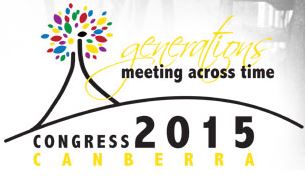 As one of the official AFFHO Congress 2015 bloggers, it is my pleasure to interview speakers and learn more about them prior to the Congress in Canberra in March 2015. Organised by AFFHO (Australasian Federation of Family History Organisations), Congress is only held every three years. It attracts some of the best speakers in Australasia and overseas, hundreds of keen family history enthusiasts and lots of trade exhibitors and without doubt is the major genealogy, family history and heraldry event in Australasia. See the program here and for information on sponsors and exhibitors see here.
As one of the official AFFHO Congress 2015 bloggers, it is my pleasure to interview speakers and learn more about them prior to the Congress in Canberra in March 2015. Organised by AFFHO (Australasian Federation of Family History Organisations), Congress is only held every three years. It attracts some of the best speakers in Australasia and overseas, hundreds of keen family history enthusiasts and lots of trade exhibitors and without doubt is the major genealogy, family history and heraldry event in Australasia. See the program here and for information on sponsors and exhibitors see here.
Previous interviews – Richard Reid, Sue Reid, Michelle Nichols, Robyn Williams, Kate Bagnall, Cora Num, Jennie Norberry, David Berry, John Blackwood
This is the tenth post in my series of interviews – speaker Mathew Trinca from the National Museum of Australia.
Questions
SH: Are you a genealogist, researcher, historian or representing your organisation?
MT: I am the current Director of the National Museum of Australia, with a background in museum curatorship and Australian history. When I think more broadly about my interests and motivations, I tend to see myself as someone who is fascinated by the past, who believes it has much to tell us, and who wants to communicate about these things to as broad an audience as possible.
SH: I wonder if you could tell us a little about your background?
MT: My personal story is a part of Australia’s 20th century migration history. My family background on both sides is Italian; my father was a migrant in the late 1930s while my mother was born in Australia to Italian migrants. Both families originate from a small town in Valtellina, an area of northern Italy in the Alps that borders Switzerland. I was born in Perth, Australia, and – while I think of myself very much as Australian – have a strong interest and feeling for my family’s origins in Italy.
I grew up and was educated in Perth, completing my first degree majoring in History at the University of Western Australia. I have worked as a journalist, consultant historian and museum curator since that time, and also completed a PhD in History at Sydney University. Perhaps unsurprisingly, given my family background, I am particularly fascinated by the flows of people around the globe, whether those are passages of travel or tourism, of sojourning, or of migration.
SH: How has history improved or changed your life?
MT: I have been lucky enough to have a full and rewarding career as a historian and museum professional, and it was history that first took me into work at museums. So in that respect, I feel I owe a great debt to the practice of history generally, and to the call of a historical imagination.
SH: What do you love most about history?
MT: I most love the fact that history is really about the human condition, in all its variety and forms. At the same time, the great lessons of history emphasize the simple and evident truth of our common humanity, and show how people (for all their differences) are connected by historical events and circumstance.
SH: Have you previously attended Congress?
MT: No
SH: What is your key topic for Congress?
MT: I am interested in looking at the practice of history generally, and how an interest in genealogy and family history is connected to our wider historical understanding.
SH: How do you think your topic/s will help the family historians at Congress 2015?
MT: I hope people will be interested by the idea that history is practised by all of us who are fascinated by the past and learning more about it. And that there is no necessary or essential division between history and historical practice in all its incarnations.
SH: What do you think are the benefits of attending a large conference like this for you personally and for others attending?
MT: Major conferences are always a great way of taking stock of a particular field or discipline at a given time, and coming to a sense of what the major preoccupations and interests are of people within it. That’s of keen interest to me, as the head of an organisation that is devoted to telling stories about the past and human experience in Australia.
SH: Do you have a favourite piece of advice or a tip or trick you can share with conference attendees?
MT: Keep an open mind and engage as much in the opportunities for informal discussion and debate, as much as in the structured sessions.
SH: Is there somewhere we can connect with you online?
MT: I am available at Mathew.Trinca@nma.gov.au and on Twitter @MathewTrinca
Thanks Mathew for sharing your thoughts with us.
Over the next two months I will be bringing you more interviews with Congress speakers. My official blogging team partners Jill Ball and Pauleen Cass will be doing similar interviews and we will bring you news of Congress as it comes to hand. I am looking forward to catching up with and making new geneamates as well as attending some great speaker sessions in March. Hope to see you there too.
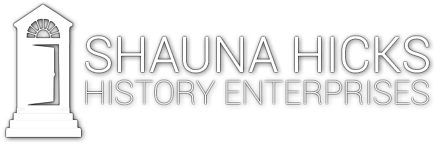
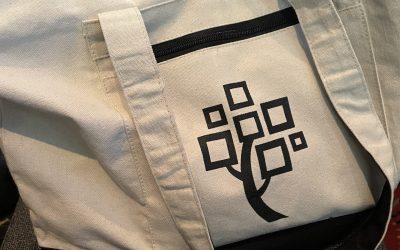
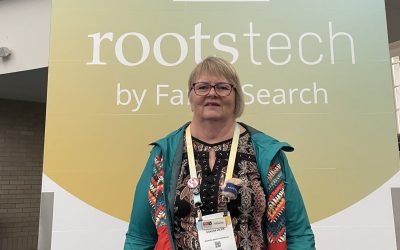
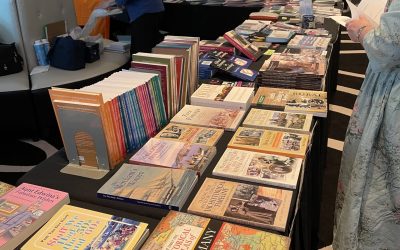
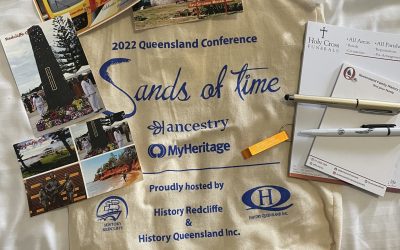
0 Comments
Trackbacks/Pingbacks